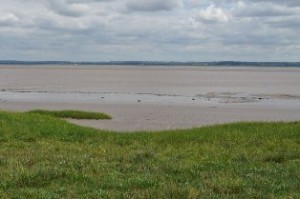-
- Buy a UK rod licence: EA Link
- 0800 807060 EA Hotline, Pollution, Poaching
- Thames Region River Levels
- Thames River Conditions
- Thames Temps and Clarity
- Thames Fishing Byelaws
- Thames Annual Tidefest
- Thames Record List
- Thames Eel Monitoring
- EA Annual Fisheries Report
- EA Flood Warnings
- Thames Sewage Discharge Notifications
- Thames Sewage Events
- Thames Tideway Tunnel
- River Thames Scheme: Reducing flood risk from Datchet to Teddington
- Martin Salter: Fighting for Fishing Blog
- Duncan Charmans World of Angling Blog
- Angling Trust
- Water and sewerage companies in England: environmental performance report 2013 – 2016
- EA Pollution incidents: 2014 evidence summary
- EA Pollution incidents: 2015 evidence summary
- River Crane and DNR Fisheries Impact assessment
- Links
Recent Tweets
Error retrieving tweetsNews Archive
Proposed Barrage across the Severn Estuary ‘could be absolutely devastating’
As well as doubting claims about the environmental impact of the barrage, all four organisations expressed support for future alternative smaller projects in the Severn Estuary to test and develop new tidal energy technology which Britain could export globally.
Angling Trust National Campaigns Coordinator Martin Salter told the Committee a full-width barrage across the estuary would mean fish dying due to sudden changes in water pressure and salinity, and through turbine strikes. He said: "Claims that these turbines are fish friendly are absolute guff. This is 24/7 fish mincing. Turbines kill fish above a tip speed of 6-7 metres per second. The Hafren proposal is for a tip speed of 9 metres per second. How on earth can they make press statements that these are "fish-friendly". They are simply not. "This drives a coach and horses through all environmental protections that governments have signed up to. The impact could be absolutely devastating on both the commercial fishery, on the recreational fishery and on highly protected habitat."
WWT Chief Executive Martin Spray told MPs: "This represents such a massive investment and such a massive change to the estuary that we do need more information. We have got to get a little more clever about how we address the environment. There is potential for energy generation but we have to come up with environmentally sustainable, acceptable and sensible solutions."
RSPB Head of Site Conservation Policy Kate Jennings said experiences elsewhere suggest smaller projects would be a better way to test new technologies rather than repeat experiences in the Netherlands: "The experience in the Eastern Scheldt estuary in the Netherlands where they built a storm surge barrier in the 1980s is the best comparator for the Severn Barrage. What they found is that 30 years after construction the estuary is still losing intertidal habitat. They think it will go on losing habitat for at least a century. "The official Government study into the Severn Barrage proposal in 2010 showed that there would be significant effects on the populations of 30 species of birds and that in addition to the Severn it would also have negative impact on at least five other internationally important wildlife sites nearby."
Kate also addressed claims that a barrage would reduce flood risk by protecting against storm surges, telling MPs a barrage could actually increase flood risk upstream: "There are other forms of flood risk. A significant one being fluvial (rivers) and managing that relies on the ability to get water out of the Severn. Holding it back behind a barrage would compromise that and tide-lock drainage. We don't have enough details of the proposals."
The Angling Trust, WWT, and RSPB have also agreed a joint position regarding the Severn Barrage with several other environmental organisations – WWF-UK, the Wildlife Trusts, Wye & Usk Foundation, Marine Conservation Society, Severn Rivers Trust, Salmon & Trout Association and Campaign to Protect Rural England.
This entry was posted in News and tagged Angling Trust, Environment Agency, Hydropower, Martin Salter. Bookmark the permalink.


